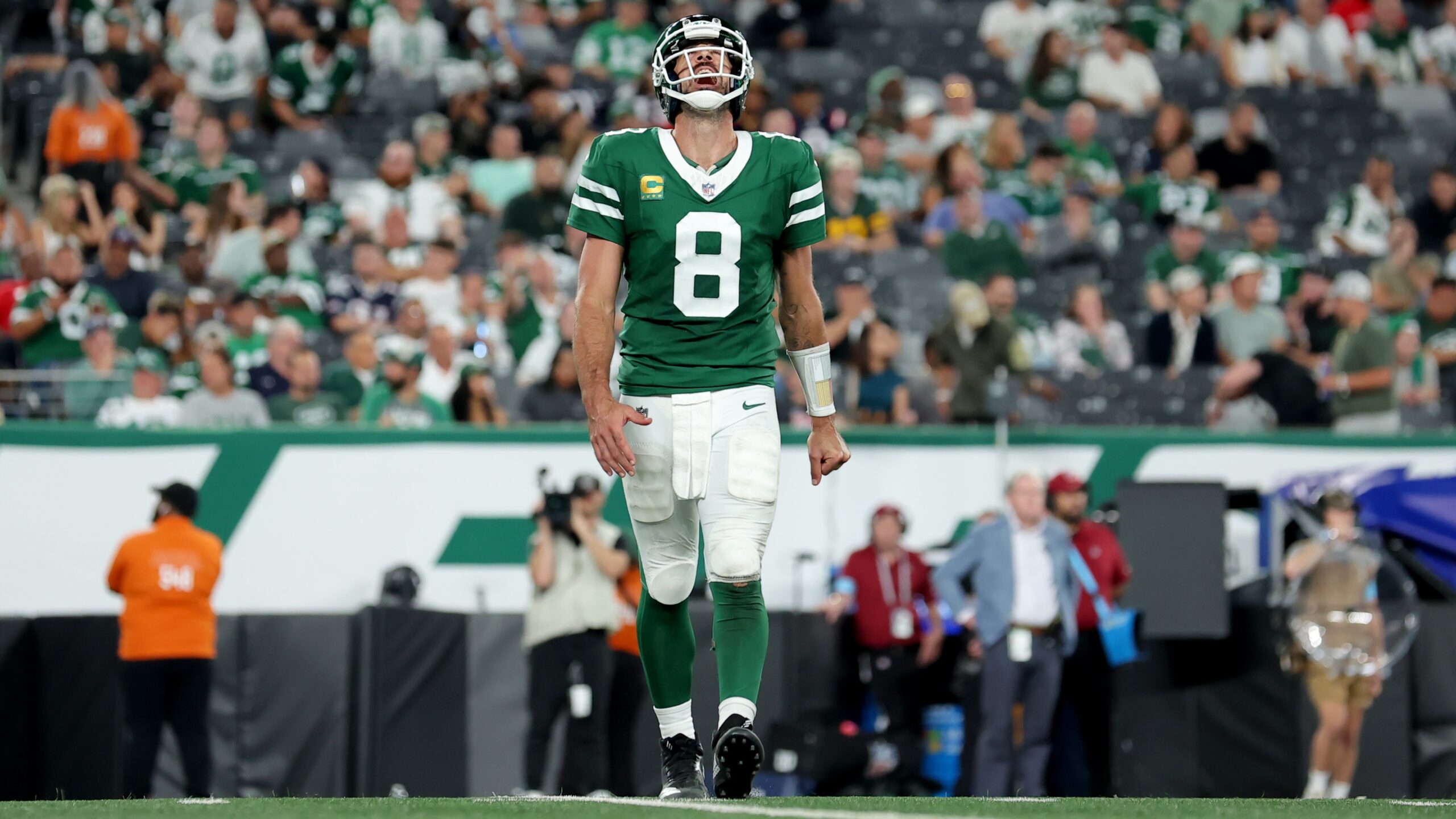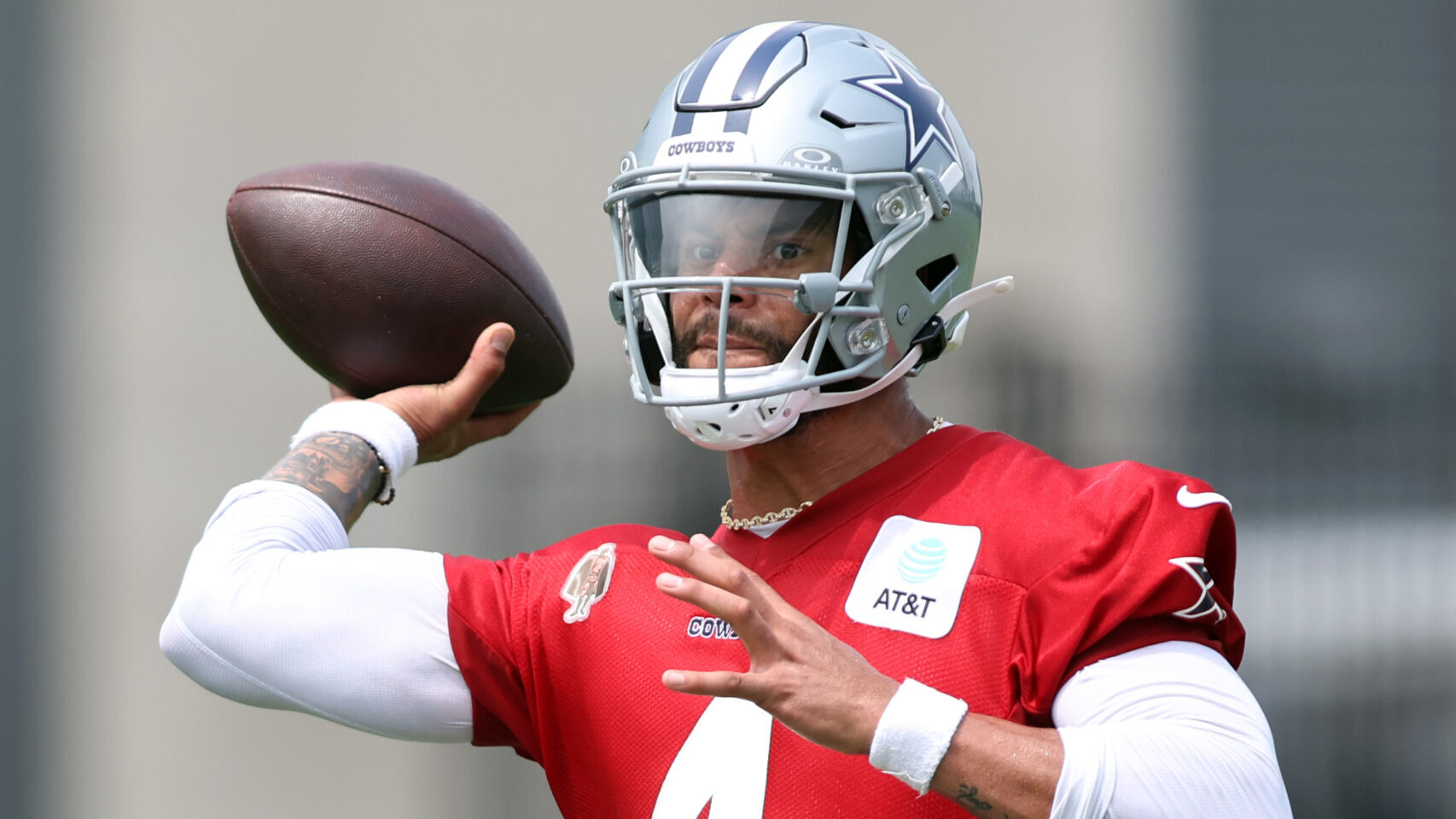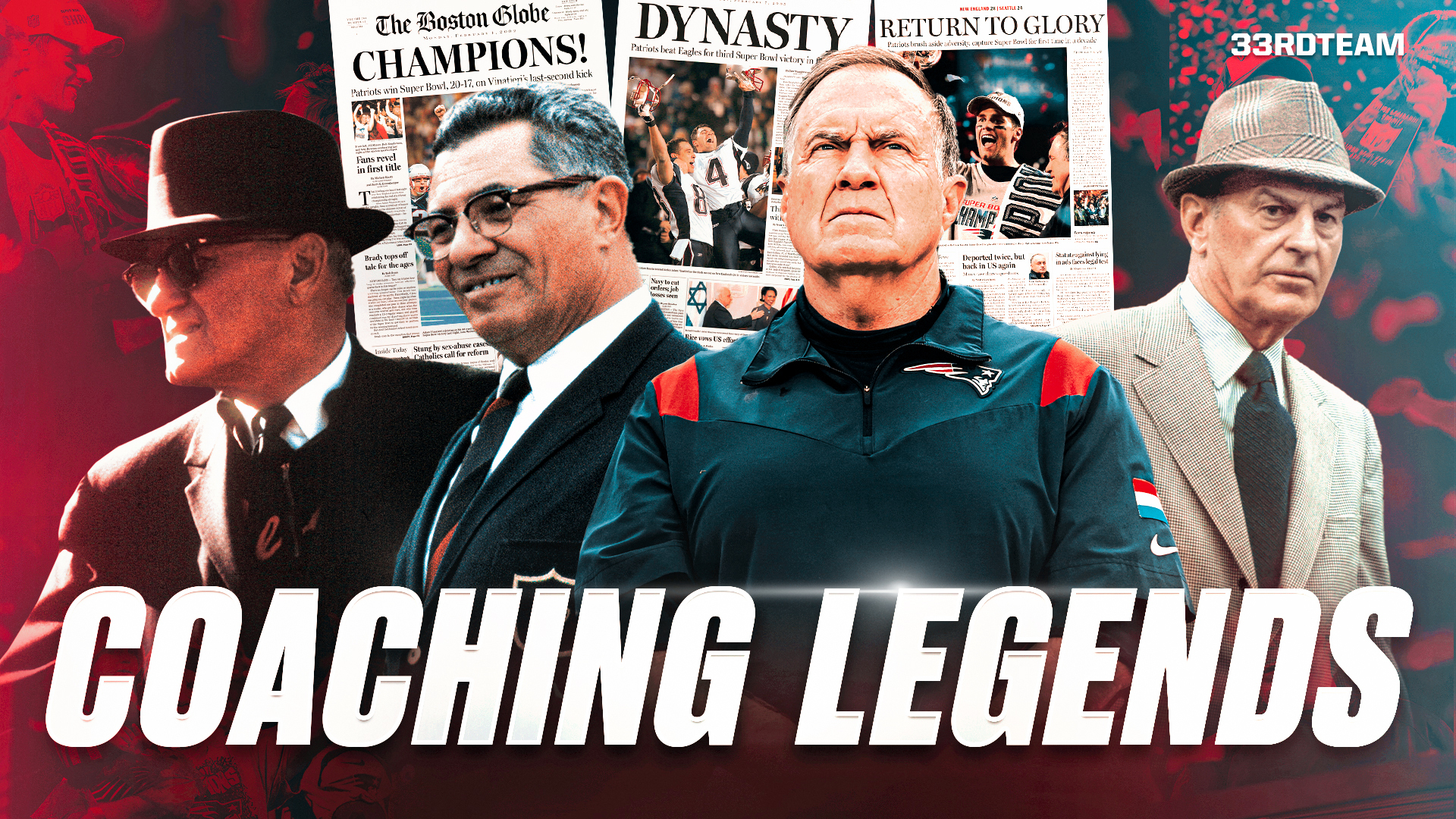Analysis
10/14/23
5 min read
Brotherly Shove Not the Only Way to Succeed on Short-Yardage Plays
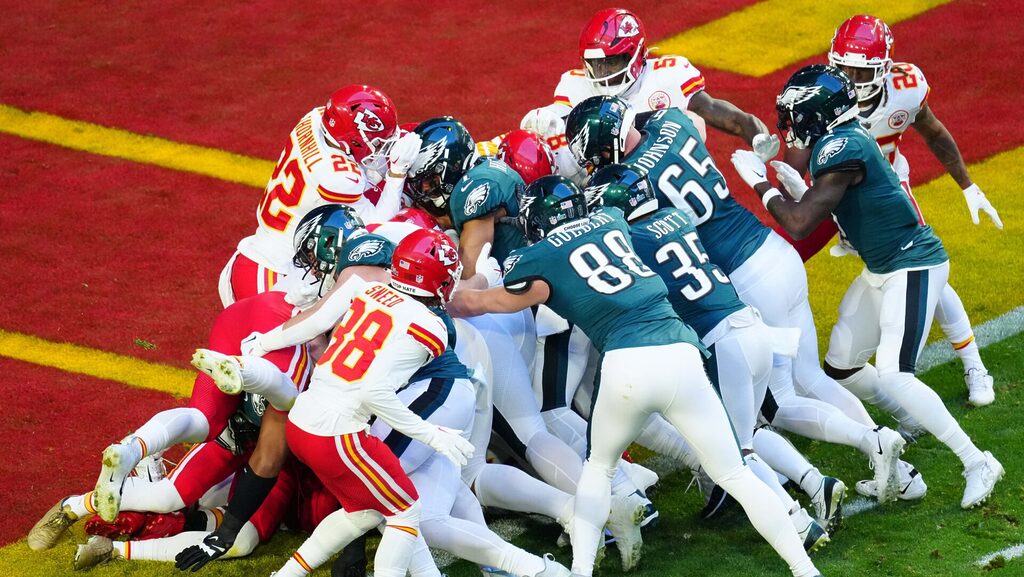
As a football community, we’ve spent a lot of time and words talking about quarterback sneaks lately. And really, that’s been centered on the “tush push” / “Bush push” / “brotherly shove” that the Philadelphia Eagles have popularized.
But teams have plenty of success without having to go in that direction. Sure, the sneak is the best option available, but the success rate is plenty high for various run options. (Admittedly, this has been a down year for sneaks, which have achieved a first down just 75 percent of the time in 2023.)
Short-Yardage Plays Strategy
Run Type Success on Third- and Fourth-and-short, 2022-23 (minimum 30 attempts)
| Run Type | Att | First Down % |
| QB Sneak | 328 | 84% |
| Jet Sweep | 40 | 80% |
| Duo | 114 | 79% |
| FB Dive | 67 | 73% |
| QB Design (non-sneak) | 72 | 72% |
| Lead | 42 | 69% |
| Pitch | 100 | 68% |
| Inside Zone | 382 | 66% |
| Outside Zone | 102 | 58% |
| Stretch | 30 | 57% |
Teams mostly throw their big people at the other team’s big people. When they deviate from that model, they have the most success by either trying to avoid the interior of the formation entirely (via a Jet Sweep) or by getting numbers advantages at the point of attack (via double team blocks, quarterback runs, or fullback blocks).
The biggest takeaway is that, by far, the least successful run types are sort of half-measures, where the runner is aiming outside the guard but isn’t benefiting from quick lateral movement (i.e., with jet motion or a pitch).
What If Teams Pass?
Overall, the run game is a better proposition than the passing game, with only a yard or two to get. Teams only convert on 55 percent of their dropbacks (which would rank below every run type above). There’s a lot more variety in what a team could call in this spot, so we will group plays based on where the targeted player was lined up and what kind of route they ran.
(For this conversation, we’re grouping routes corresponding to the typical 1-9 categorization. So the “Shallow” group includes four routes, primarily including slants and drags.)
Route Type Success on Third- and Fourth-and-short, 2022-23 (minimum 30 attempts)
| Alignment | Route Type | Att | First Down % |
| Tight | Flat | 51 | 78% |
| Slot | Hook | 76 | 75% |
| Slot | Flat | 45 | 69% |
| Backfield | Flat | 60 | 67% |
| Slot | Shallow | 88 | 57% |
| Wide | Shallow | 44 | 57% |
| Wide | Hook | 36 | 56% |
| Slot | Out | 67 | 54% |
| Slot | Vertical | 40 | 50% |
| Slot | Cross | 46 | 48% |
| Slot | Corner | 30 | 40% |
Throws to the flat are quite successful, which makes a lot of sense because they take the receiver into open space quickly and (if thrown accurately) can give some room to make a play after the catch.
The laggards on this list sort of make it clear why the hook routes from the slot are as successful as they are. Getting the ball out quickly and reducing the overall distance of the throw is (unsurprisingly) pretty important when all you need is a couple of yards.
You can see, though, that only the top end of this range of success rates overlaps with the success rates of the run plays.
Teams Succeeding on Short Yardage Other Than Sneaks
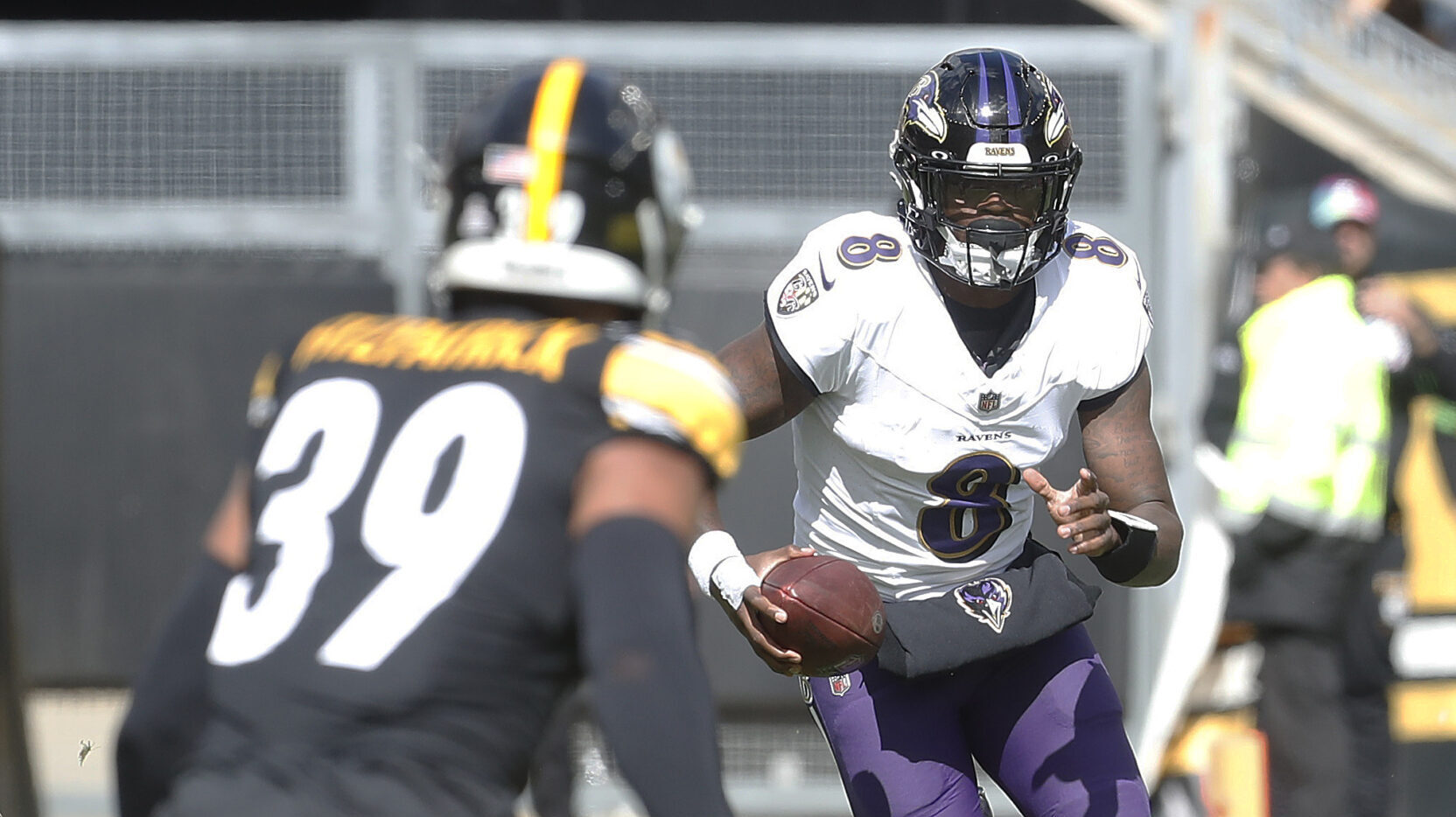
Baltimore Ravens
So far this year, the Baltimore Ravens have converted on 15 of 18 late down short-yardage plays and used just one sneak. This isn’t entirely surprising because when you look at Lamar Jackson, you don’t think, “Let’s shove this guy into a mass of humanity,” the same way you might for Jalen Hurts.
Despite that “limitation,” they’ve leaned heavily on the run in those spots, converting 11-of-12 non-sneak runs, including 6-of-7 on Power and Inside Zone alone and a couple of designed runs from Jackson.
Tennessee Titans
In past years, this breakdown would be very surprising given the importance of Derrick Henry to their game plan, but the Tennessee Titans have thrown more than they’ve run in short-yardage spots this year. It’s working out fine; they’ve gone seven of nine through the air. This isn’t the sort of thing that we’d expect to continue, given that in 2022, they converted eight times on 18 dropbacks.
Henry is splitting time with Tyjae Spears, even in short-yardage spots, which says more about the general plan for Tennessee than Henry’s effectiveness. He’s been hit at or before the line of scrimmage each of the four times he’s gotten the ball, but he’s converted three of them, and last year, he converted 15 of 18 times in late down short yardage situations.
Two Other Teams To Note
Miami Dolphins
With all the hype around the Miami Dolphins offense, a team built on speed instead of power is perhaps unsurprisingly just 2-for-12 when facing short yardage on late downs. That includes Tua Tagovailoa going 0 for 4 with a sack and three pressures on five dropbacks, which feels like the sort of thing that might come back to bite them in a big spot later in the year.
Philadelphia Eagles
Funny enough, we circle back to the Eagles, and they aren’t that awesome facing short yardage overall. Sure, they have had many short-yardage plays (more quarterback sneaks alone than the Dolphins have had total opportunities), but they’ve converted on less than half of their short-yardage dropbacks and have missed on two of six non-sneak rushes.
In the run game, they’ve leaned heavily on inside zone, which has been a little less successful for them than average. That’s surprising for a team that run blocks as well as it does.
They’ve also been relatively unremarkable in the passing game, moving off of a tendency to throw to the flat from a tight alignment towards throwing slants and drags to receivers out wide. They might benefit from leaning back towards a more consistently effective tactic—you know, like the quarterback sneak.
This story was written by Alex Vigderman and James Weaver.






